Contents
- 1 Unexplained Weight Loss
- 2 Physical Causes of Unexplained Weight Loss
- 2.1 Unexplained Weight Loss Due To Muscle Loss
- 2.2 Hyperthyroidism
- 2.3 Rheumatoid arthritis
- 2.4 Unexplained Weight Loss due to Diabetes
- 2.5 Inflammatory Bowel Disease
- 2.6 Chronic Obstructive Pulmonary Disease
- 2.7 Endocarditis
- 2.8 Tuberculosis
- 2.9 Cancer
- 2.10 Addison’s Disease
- 2.11 HIV
- 2.12 Congestive Heart Failure
- 3 Psychological Causes of Unexplained Weight Loss
- 4 Tip For Balancing Weight
- 5 When To See A Doctor
- 6 A Word From MantraCare
Unexplained Weight Loss
Unexplained weight loss is a significant decline in body weight that occurs even though the person is not attempting to lose weight. Diet, exercise, or lifestyle modifications are not the causes of a decrease in weight under such conditions. However, weight loss of 10 pounds or more, or 5% of body weight, during six to twelve months, is classified as “unexplained.”
Losing weight unintentionally can be a sign of a sickness or any other serious condition. As a result, if you (or a family member) experience unexplained weight loss, it is critical to get medical help.
Anyone can have unexplained weight loss. It is, however, most frequent (and most dangerous) in adults over the age of 65. In elderly persons, losing weight even less than 5% of body weight or 10 pounds could indicate a dangerous disease. Losing weight unexpectedly can be caused by a variety of diseases ranging from minor to severe. The following are some of the physical and psychological causes.
Physical Causes of Unexplained Weight Loss
Unexplained Weight Loss Due To Muscle Loss
Muscle loss is a natural part of ageing, but significant muscle loss can be caused by malnutrition, an eating problem, or an immunological disease such as HIV/AIDS. This deterioration might also indicate the presence of a major chronic illness or mental health problem.

Common symptoms of muscle loss that you may accompany during unexplained losing weight are:
- Weakness
- Fatigue
- Night Sweats
- Diarrhoea
- Poor Functioning
The majority of the time, people lose muscle mass as a result of a shift to a more sedentary lifestyle, or as a result of age. Loss of muscle mass or severe weight loss in other circumstances, on the other hand, may signal a medical problem that requires further investigation.
Unfortunately, muscle loss is more difficult to fight in this instance. Consult a doctor if you’ve lost weight and muscle mass quickly and inadvertently.
Hyperthyroidism
Hyperthyroidism is basically an overactiveness of the thyroid. When your thyroid gland generates too much of the hormone thyroxine, you suffer from hyperthyroidism. Hyperthyroidism causes your body’s metabolism to speed up, resulting in unexpected weight loss and a fast or irregular heartbeat.
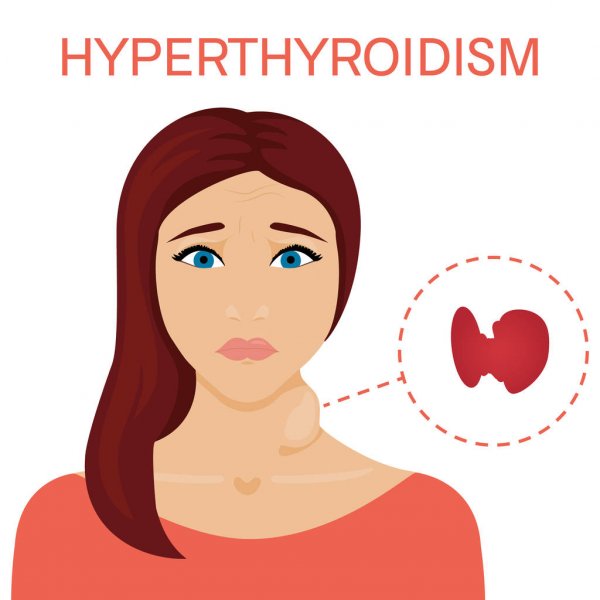
Hyperthyroidism can seem like other illnesses, making it harder for your doctor to identify. It can also result in a wide range of signs and symptoms that resulted in losing weight, such as:
- Rapid heartbeat
- Irregular heartbeat
- Increased appetite
- Nervousness
- Difficulty in sleeping
- Skin thinning
Hyperthyroidism can be treated in a variety of ways. Antithyroid medicines and radioactive iodine are used by doctors to reduce thyroid hormone production. Surgery to remove all or part of your thyroid gland is sometimes used to treat hyperthyroidism.
Although untreated hyperthyroidism can be dangerous, most people respond well once it is detected and treated.
Rheumatoid arthritis
Rheumatoid arthritis is a long-term inflammatory condition that affects your joints more. The illness can harm a range of body systems including the skin, eyes, lungs, heart, and blood vessels. Obesity and being overweight are also rheumatoid arthritis risk factors.
Furthermore, while some people gain weight as a result of the disease, others lose weight. Rheumatoid arthritis is an autoimmune disease in which your immune system affects your own body’s tissues.
Symptoms of rheumatoid arthritis which results in weight loss include:
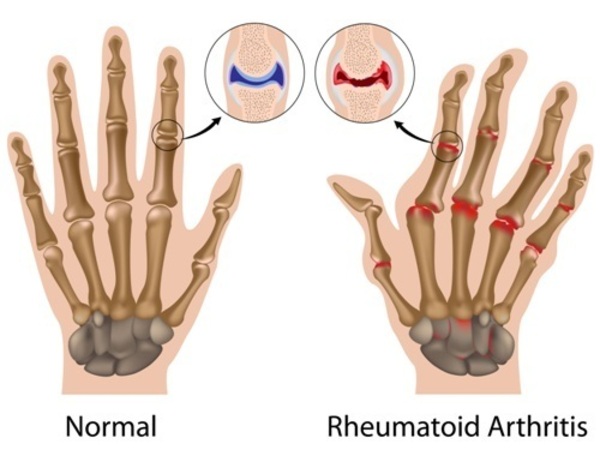
- Swollen joints
- Warm joints
- Tender joints
- Fatigue
- Fever
- Joint stiffness
Rheumatoid arthritis causes inflammation, which can cause harm to other regions of the body. Even though new types of drugs have greatly improved treatment choices, severe rheumatoid arthritis can still cause physical limitations.
Unexplained Weight Loss due to Diabetes
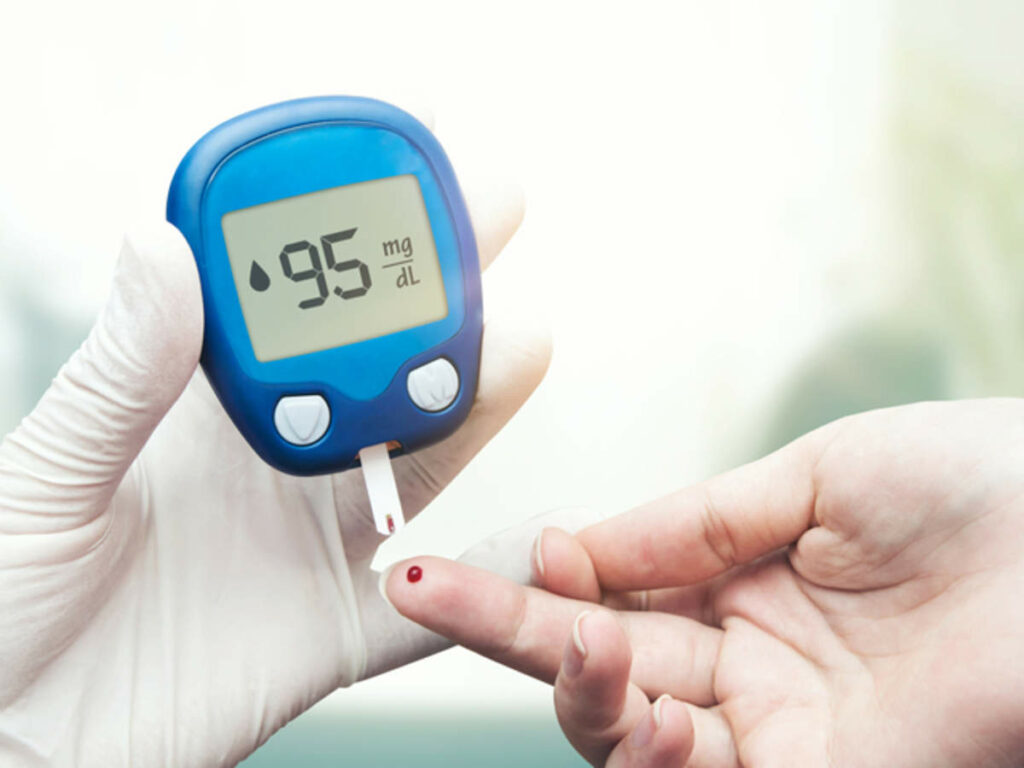
In a person with diabetes, the lack of insulin stops the body from transporting glucose from the bloodstream to the cells, where it can be used as energy.
When this happens, the body begins to burn fat and muscle for energy, resulting in a loss of overall body weight. Unexpected weight loss is common in persons before a type 1 diabetes diagnosis, but it can also impact people with type 2 diabetes.
Common symptoms that occur with diabetes which results in weight loss are:
- Polydipsia
- Polyuria
- Nausea
- Fatigue
- Genital itchiness
- Blurred vision
You should see a doctor if you’ve dropped more than 5% of your normal body weight or more than 10 lbs (4.5 kg) in 6 – 12 months or less. They’ll be able to figure out what’s causing the weight loss (for example, undiagnosed diabetes) and how to best treat it.
Inflammatory Bowel Disease
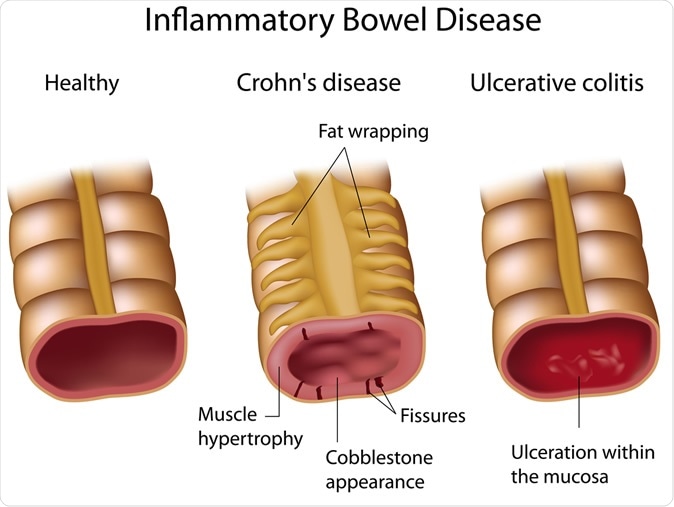
Weight loss is a common sign of Crohn’s disease and ulcerative colitis, which are both inflammatory bowel diseases.
Weight loss is a sign of malnutrition, which occurs when you don’t consume enough calories to meet your demands. Some of the reasons why this happens are:
- Poor appetite
- Malabsorption
- Increase in calories
- Loss of nutrients
- Food aversions
People with inflammatory bowel diseases are losing their level of hunger. They don’t feel the urge to eat. This results in weight loss. It is also because of the low-calorie intake of food. You may consult with your dietician for avoiding food that is low in calories. and rather, go for some high-calorie stuff.
Chronic Obstructive Pulmonary Disease
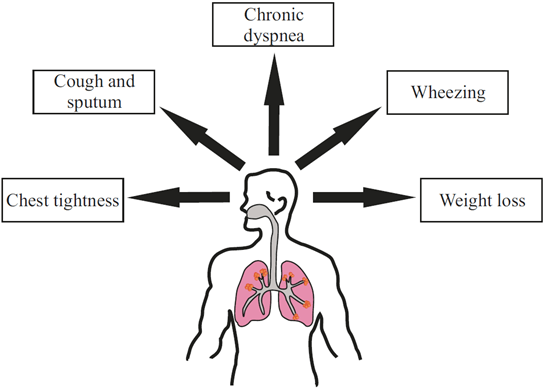
Chronic Obstructive Pulmonary Disease (COPD) causes severe weight loss. Under this condition, it causes damage to your lungs to the point that your lung volume will increase in such a way where your diaphragm will get flatten, lowering the amount of space between your lungs and stomach.
When this happens, your lungs and stomach may press against each other, causing discomfort during eating. Breathing becomes more difficult with a flattened diaphragm. However, some symptoms of COPD include:
- Headaches
- Muscle aches
- Breathing problem
- Wheezing
COPD can also cause mental health problems, which can have an impact on your appetite and eating habits. It’s not uncommon to feel depressed or anxious when dealing with the effects of COPD. Everyone is affected differently by mental health issues. Some people gain weight by eating more, while others lose weight by eating less.
Even if you have a healthy appetite, breathing with damaged lungs burns more calories than breathing with healthy lungs.
Endocarditis
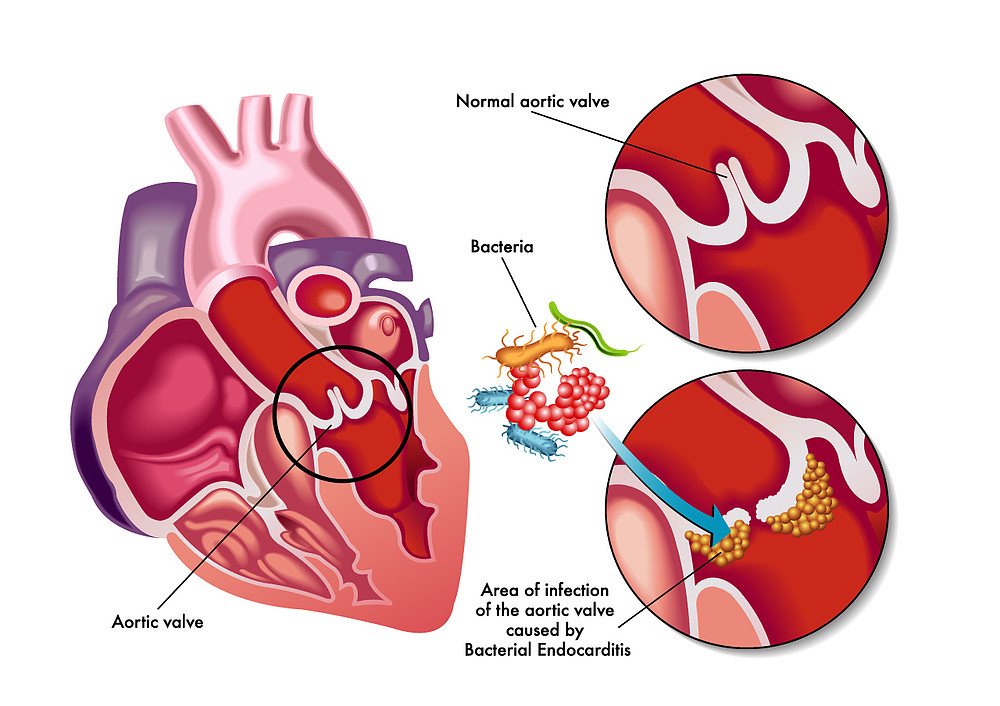
Endocarditis is an inflammation of the inside lining of your heart, called the endocardium. It occurs when bacteria or other germs enter the bloodstream and gather in the heart.
The majority of persons who have endocarditis have a fever. This could be accompanied by a loss of appetite. Increased body temperature also boosts metabolism and fat burning, resulting in weight loss.
Some other symptoms include are:
- Night sweats
- Back pain
- Headache
- Coughing
- Abdominal pain
- Difficulty in breathing
In healthy hearts, endocarditis is uncommon. People with damaged heart valves, mechanical heart valves, or congenital heart problems are more likely to be affected. Antibiotics and surgery are used to treat endocarditis.
Tuberculosis
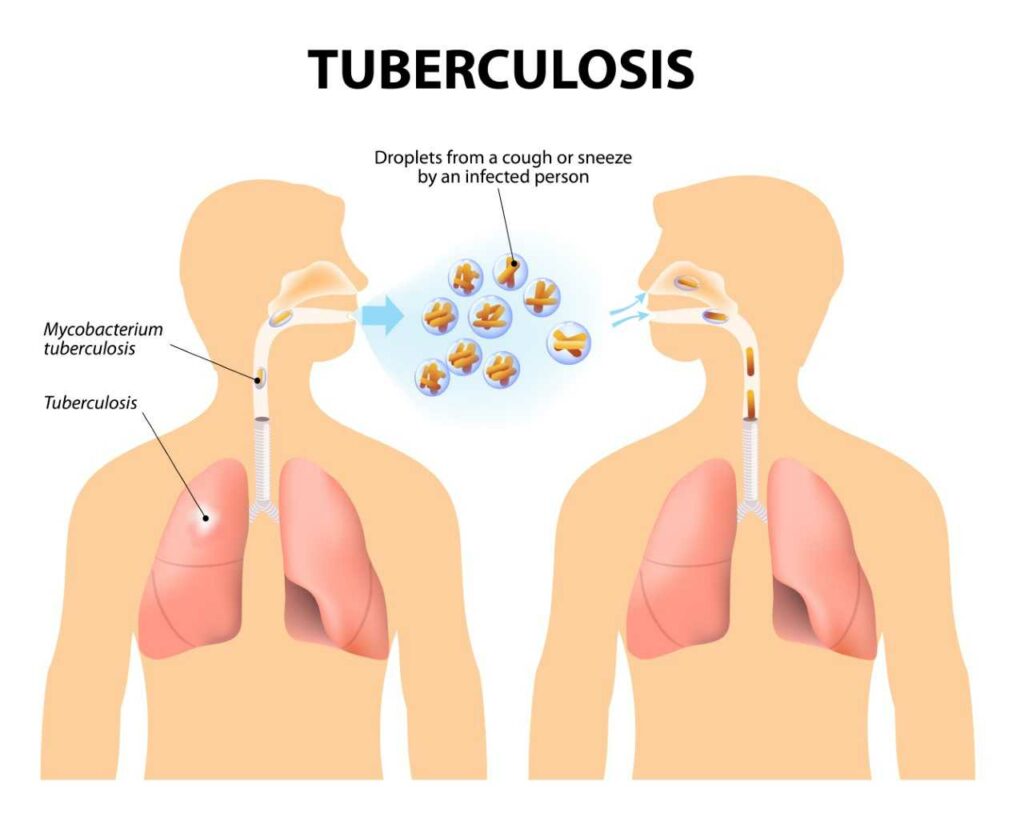
Tuberculosis (TB) causes severe weight loss and loss of appetite, in addition to symptoms such as coughing and fever. In a study, more than 40% of people with tuberculosis reported a loss of appetite and more than 44% lost weight.
This weight loss, commonly known as wasting, causes malnutrition and immune system dysfunction, putting the TB patient at a higher risk of dying from the disease. Indeed, tuberculosis remains a leading cause of death around the world.
Symptoms include:
- Bad cough
- Chest pain
- Coughing up phlegm
- Night sweats
- Fatigue
- Fever
However, tuberculosis can be treated with a course of about six to nine months.
Cancer

Weight loss is widespread among cancer patients and is frequently the disease’s initial symptom.
It cannot detect cancer on its own, but it frequently suggests to clinicians that test to be undertaken to rule out cancer as a reason.
Weight loss isn’t specific to any one type of cancer; it can happen to anyone with colon cancer, lung cancer, breast cancer, or liver cancer. Weight loss can be caused by a variety of factors, including a loss of appetite, weariness, and nausea.
Weight loss can be exacerbated by gastrointestinal issues such as diarrhoea and infections of the mouth or oesophagus. Other things, an emotional factor, such as depression or anxiety, may hinder a person from eating properly or getting the nutrition they require.
Addison’s Disease
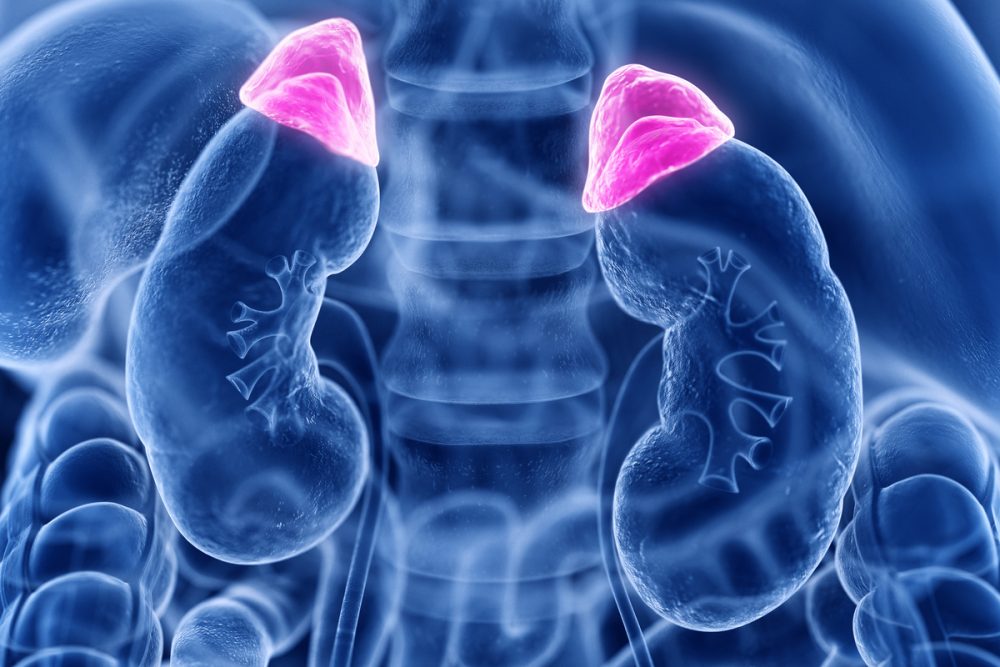
When the immune system attacks the adrenal glands, Addison’s disease occurs. As a result, the adrenal glands are unable to produce adequate cortisol and aldosterone.
Cortisol is a hormone that controls a variety of processes, including metabolism and appetite. Low cortisol levels might cause a lack of appetite and weight.
Some other symptoms of Addison’s disease that cause weight loss are:
- Chronic fatigue
- Salt cravings
- Low blood sugar level
- Hyperpigmentation
- Muscle weakness
Hence, Addison’s disease has rare cases. So its treatment includes medications that are regulated based on your adrenal gland.
HIV

Weight loss in HIV patients can be caused by a variety of factors. You may be losing weight quickly because you have another infection in addition to HIV. Opportunistic infections are the name for this sort of infection.
The Human Immunodeficiency Virus (HIV) is a virus that targets the immune system of the body. AIDS (Acquired Immunodeficiency Syndrome) can develop if HIV is not treated properly.
There is currently no viable treatment available. People who contract HIV gets infection for the rest of their lives.
You can manage HIV with the right medical care. People living with HIV who receive appropriate HIV treatment can live long, have a healthy life and protect their partners.
Congestive Heart Failure
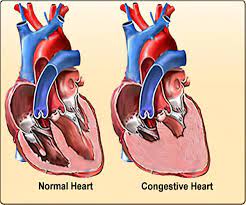
Congestive Heart Failure (CHF) can cause weight loss as a side effect. When the heart can’t fill up with enough blood, pump blood with adequate force, or both, CHF develops. One or both sides of the heart may be affected.
Your digestive tract cannot receive enough blood if you have CHF. This can cause nausea and early satiety. It may also be difficult to breathe while eating. Inflammation in injured cardiac tissue increases metabolism, resulting in accidental weight loss.
Symptoms of CHF include:
- Breathing problems
- Coughing that doesn’t go away
- Weariness
- Rapid heart rate
Angiotensin-converting enzyme inhibitors, beta-blockers, and diuretics are among the drugs which doctors recommend use to treat CHF. Surgery may be required in some circumstances.
Psychological Causes of Unexplained Weight Loss
Dementia

Memory loss, confusion, and behavioural abnormalities are all symptoms of dementia. It is a progressive deterioration in brain function. Dementia affects roughly 1% of people between the ages of 65 and 69, but it can impact up to 30% of those over the age of 85.
However, dementia is not a natural part of the ageing process. Mild memory loss on its own can be a natural component of ageing. Symptoms of dementia are:
- Paranoid behaviour
- Loss of memory
- Poor judgment
- Poor insight
However, dementia also causes early signs of unexplained weight loss. The researchers found these signs mainly in elderly people. With the onset of dementia, women start losing weight at an accelerated pace as compared to men. This is due to the problems related to the brain. Thus, causes changes in appetite also.
Irritability

It can be caused due to changes in hormones. Feeling irritated for an extended period of time leads to conditions like unexplained weight loss, diabetes, any infection or etc. A person may cause the following symptoms due to irritability:
- Confusion
- Excessive sweating
- Shallow or fast breathing
- Rapid heartbeat
Hence, irritation causes mood changes which also leads to unexpected weight loss. People who are having the feeling of irritation, generally prefer to eat less. They also do not enjoy cooking and pleasure in eating.
Weight Loss Due To Depression
Appetite and weight changes are frequently linked to other depressive symptoms. However, depression mainly causes a lot of mood changes that can lead to weight loss. Some of these symptoms include:

- Feeling sad
- Hopelessness
- No interest in any activity
- Not enjoying cooking
- Less pleasure in eating
- Food feels bad in taste
These shifts can take the place of your normal range of emotions, absorbing your mental energy to the point that you have little time to focus on regular routines like showering and dressing, cleaning your house, or preparing and eating meals. This causes eating less food which results in weight loss.
Insomnia Weight Loss
Insomnia or Poor sleep is one of the causes of unexplained weight loss. Maintaining a healthy diet and doing exercise regularly can maintain you physically but not mentally. For mental health, it is necessary to have a good sleep. Some common effects of insomnia leading to weight loss are:

- Increase in appetite
- Increase of endocannabinoids in your blood
- Rising levels of cortisol
- Inability to take the right decisions (even for your own health)
- Slow down your metabolism
Moreover, lack of enough sleep can cause weight loss as your mind is disturbed at that time. A disturbed mind is unable to fall asleep. Hence, causes insomnia. However, in some cases, it can also cause weight gain.
Tip For Balancing Weight

Some preventive measures that you can apply for maintaining your weight are as follows:
- Do Regular Exercise
- Eat healthy food
- Decrease screen time
- Stay hydrated
- Stay positive
- Monitor your BMI and BMR
- Join any weight management program
- Keep your food log
- Eat more fibres
- Hang out with positive people
Weight management is important for overall health and can help you prevent and manage a variety of diseases and their causes. You are more likely to develop major health problems such as heart disease, high blood pressure, type 2 diabetes, gallstones, breathing problems, and some other chronic ailments if you are overweight or underweight.
That is why it is so important to maintain a healthy weight as it lowers your risk of acquiring these illnesses, makes you feel better about yourself, and provides you more energy to enjoy life.
When To See A Doctor
It’s natural for your body weight to change throughout time. Something else could be going on if you’re losing weight without changing your habits. Visit your doctor if you lose 5% of your body weight in 6 to 12 months or if you observe any of the preceding symptoms.
A Word From MantraCare
For more tips on healthy eating and weight loss, contact Mantra Care. We can help you develop a healthy weight loss plan that is tailored to your specific needs and goals. As always, consult with a registered dietitian or nutritionist if you have any questions or concerns about starting a new diet.


